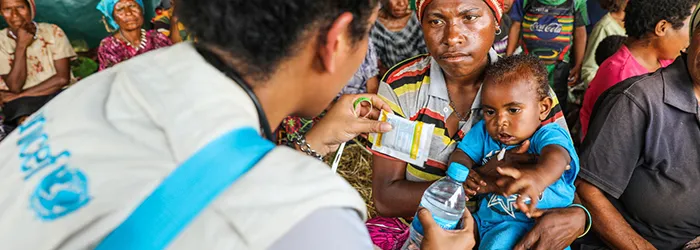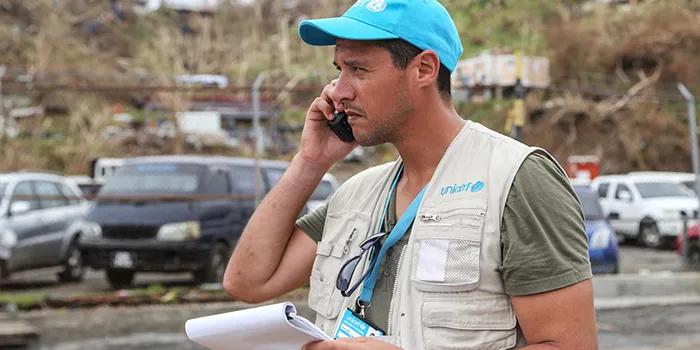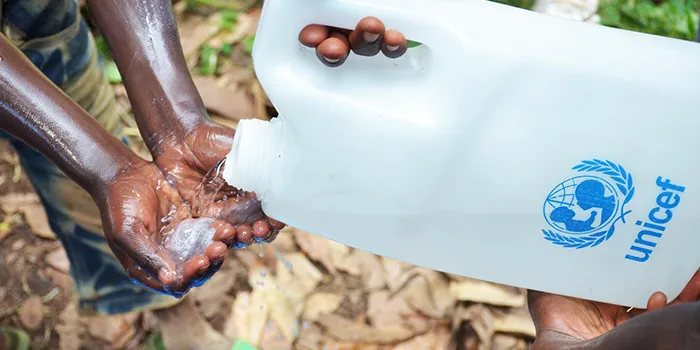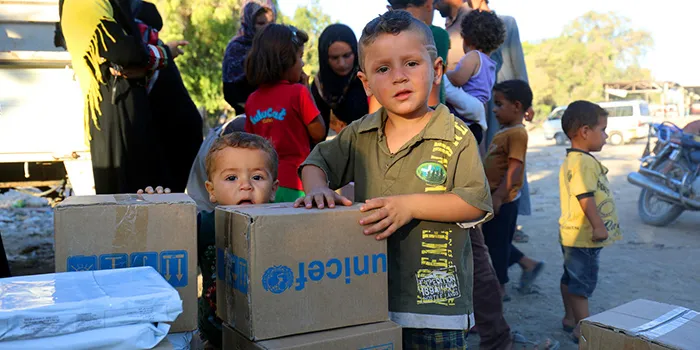Disaster and emergency relief

UNICEF is one of the most active disaster relief organizations in the world. We currently work in 192 countries and have access to resources and information on a Global scale.
A quick overview of UNICEF’s disaster preparedness:
- More than 13,000 staff worldwide
- 350 warehouses globally
- Strategic transit hubs in Copenhagen, Dubai, Panama and Shanghai
- 24/7 emergency operations center in New York
In order to be as effective as we are, we need to join with donors who will commit to providing consistent funding. This ongoing, monthly support allows us to be prepositioned to reach as many children as possible and maintain the resources we need to lead response in a crisis.
This consistent, monthly support allows UNICEF to move swiftly to provide lifesaving emergency support including clean water, nutrition, protection, shelter and health care. UNICEF also works to help get children back to learning so they can regain a sense of normalcy and get back to doing what kids do best — build the future.
Types of disaster relief:
UNICEF saves lives during all types of emergencies, a monthly gift could help us respond to:
1. Natural disasters:
- Earthquakes
- Hurricanes
- Flooding
- Drought
- Famine
2. Infectious disease outbreaks:
- Ebola
- Cholera
3. Humanitarian emergencies:
- Conflicts and wars
How your monthly donations can help when disaster strikes
1. Within minutes, we check in with our resources around the world to understand:
- How many children are affected, where they are and what they need
- The extent of the damage
- Whether UNICEF staff members are safe
2. Within hours, connect with the national government.
UNICEF has close relationship with governments around the world and is a trusted partner. That means we immediately connect with the country affected by the disaster and determine how we can work together.

3. Survey the scene ASAP.
UNICEF uses innovative tools like drones to survey damage in the wake of a disaster, and data science to determine the number and location of children in need of urgent aid.
4. Coordinate a rapid response.
UNICEF works closely with other organizations to make sure children receive the support they need. We lead the emergency response on nutrition, water, sanitation, hygiene, child protection and education.

5. Ship emergency aid
UNICEF can ship lifesaving supplies to children almost anywhere in the world within 72 hours. If a local warehouse cannot meet the demand, we ship from our large global warehouse in Copenhagen, Denmark.

Become a monthly donor to be there for children when disaster strikes
Make a difference not JUST today but tomorrow and for the future of every child.
Building a sustainable and hopeful future for children is our mandate and we can only do this with ongoing support from supporters like you.
